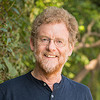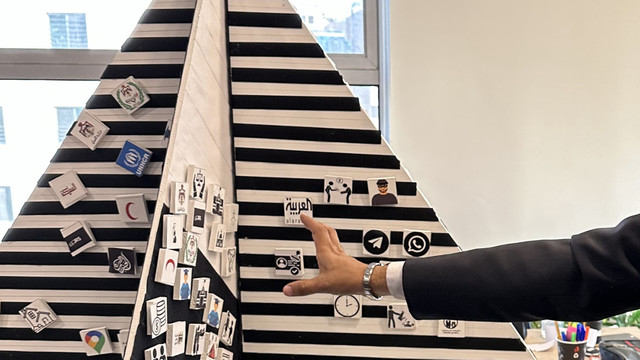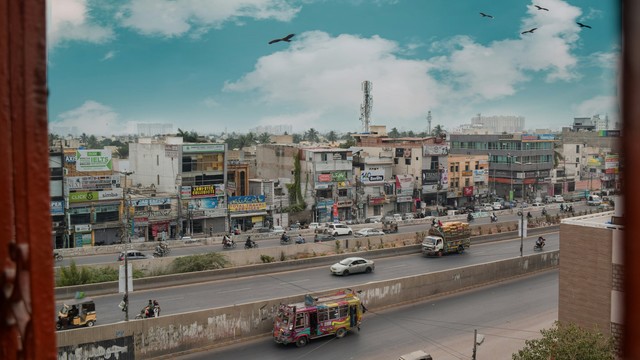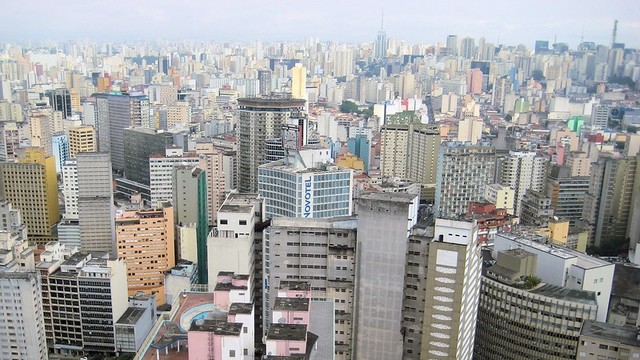Taking stock: community responses to COVID-19 in cities
A reflection on the successes, priorities and problems facing community organisations during the pandemic – with implications for their future funding and even survival.



This community farm in Chiang Mai, Thailand, sprung up on a former garbage dump (Photo: copyright Chiang Mai Urban Farm)
In hundreds of cities community organisations developed many different ways to address the pandemic in informal settlements, to counter its devastating social, economic and health impacts.
Many are federations of savings groups, affiliates of Slum Dwellers International (SDI). Despite their effectiveness and success at reaching the poorest, most get little or no international support.
Although this blog series focusing on the transition to a predominantly urban world was conceived before COVID-19, it would have been impossible to ignore its devastating effects.
But what has been missing from discussions of the pandemic was how low-income urban dwellers were being impacted and how their community organisations were responding. So we decided to invite grassroots organisations and the local NGOs who worked with them to write about their COVID-19 experiences.
To date, 11 blogs have been published on this theme including nine city case studies. Although these show diverse responses – shaped by local contexts, needs and possibilities – they share many elements.
Community-led COVID-19 responses
Many grassroots organisations have initiatives similar to those of the Philippines Homeless People’s Federation, a network of community-based savings groups and homeowners’ associations. Responses by the Philippines Homeless People’s Federation included:
- Surveying and mapping informal settlements to identify vulnerable families and those with livelihood problems to understand who needs what
- Setting up community kitchens to cook nutritious meals for unemployed and vulnerable community members
- Providing food delivery services
- Setting up hand- and foot-washing stations throughout the communities
- Collaborating with local governments to use community-based health monitors to track infections and distribute aid and information
- Planting community vegetable gardens wherever possible within the communities on borrowed land (see later section on urban agriculture), and
- Launching livelihood projects to help those who have lost their jobs.
Mumbai: community responses in a high density, low-income district were led by Mahila Milan, a federation of women’s savings groups. Communities are self-organising; including identifying and supporting vulnerable groups, distributing food parcels (using trusted community leaders) and spreading key messages (and countering misinformation).
Patna: following the devastation from COVID-19 and monsoon rains, women collectives in informal settlements have shown how community-led action is paramount in identifying gaps in service delivery and ensuring infrastructure provision. Community-led organisation and action generated a greater willingness by local state actors to contribute.
Dhaka: community-based organisations formed by informal settlement dwellers have served as mediators, helping to identify vulnerable groups, fairly distribute aid and food assistance, organise virus-prevention activities and provide basic hygiene and safety services.
Karachi: this blog described how Karachi’s informal settlements managed during the COVID-19 lockdowns and how existing government structures can support the city’s settlements during post-pandemic recovery, and beyond. Trusted community organisations were used for distributing food parcels.
Providing nutrition – the vital role of community gardens and urban agriculture
The following blogs highlighted the importance of large-scale community gardens and urban agriculture.
Quezon City: ‘Greens in our meals’ was a high priority for the women of the Homeless People’s Federation of the Philippines. What began with three visionary women getting permission from a landowner to use a vacant lot for cultivation, grew – with support from local government – to 160 community vegetable gardens on formerly unused land across the city.
Chiang Mai: a 4.8-hectare community farm has sprung up on a former garbage dump. The plan was conceived by local residents who had long been struggling to avoid eviction. It was approved by provincial and municipal government who loaned machinery to help prepare the site.
Other responses
Bangladesh: young architects worked with low-income communities to develop a hands-on guidebook to help residents manage the impacts of COVID-19.
Odisha: this Indian state developed a successful programme to provide immediate work and income for migrants, linked to an ambitious upgrading programme for informal settlements and well-planned, labour-intensive public works projects.
Sharing knowledge, experience – and priorities
Women members of informal saving groups and slum/shack dweller federations (SDI affiliates) frequently visited each other to share knowledge and experience, and strengthen their organisations. But when lockdowns and transport restrictions prevented this they learnt how to use the internet for their conversations to develop their asks:
- Support for our priorities, not those of external agencies
- A roof over our heads
- Greens with our meals
- Taking more care of our own health, and
- Affordable public transport working well.
Another priority was getting recognition for grassroots women and their organisations in the important work of mapping and enumerating informal settlements. Resulting information helped identify who was infected with COVID-19 and who was most at risk.
These skills are also just what is needed to map vulnerability to climate change impacts in their community and city.
Conclusions
Community-driven initiatives such as these are greatly admired, yet attract very little funding. As a result, their reach and effectiveness are being compromised.
Most of these case studies have federations of women’s savings groups or other community organisations as their driving force. In their role as intermediaries they are trusted both by government and residents to undertake often sensitive tasks, such as identifying and supporting vulnerable groups, and determining who gets food parcels or other assistance.
Support from city government is essential, but it too is generally lacking the funding to meet its responsibilities. However local government can help in other ways – such as giving permission for the use of empty lots for urban agriculture, leave for key residents to move during lockdown to support vulnerable or infected people, and loan of heavy equipment to prepare sites for urban agriculture.
Implications for funding – community organisations as perfect partners?
International agencies are failing to provide the support that organisations of the urban poor desperately need to fight COVID-19. Few if any structure their support to match grassroots organisations’ needs for flexible funding.
Savings groups, mostly formed and managed by women, would be perfect partners for international funders. They are organised, can manage money, are trusted, have capacity, and operate in the poorest urban communities.
But lack of support means SDI federations and other community organisations are facing very local crises of their own. Their most precious savings and loans programmes have collapsed. And as many people move away, networks of the federations are beginning to collapse.
What the thousands of savings groups around the world require is flexible funding so they can respond quickly to their communities’ most pressing needs. For some, this may be food; for others, medicine. Funds may be needed to help struggling community health facilities or to deploy safety patrols to help keep girls and women safe.
What savings groups really need is to be able to focus on their own priorities, not those of international funders.
With thanks to Slum Dwellers International and the Asian Coalition for Housing Rights who helped identify contributors for the blog series.



